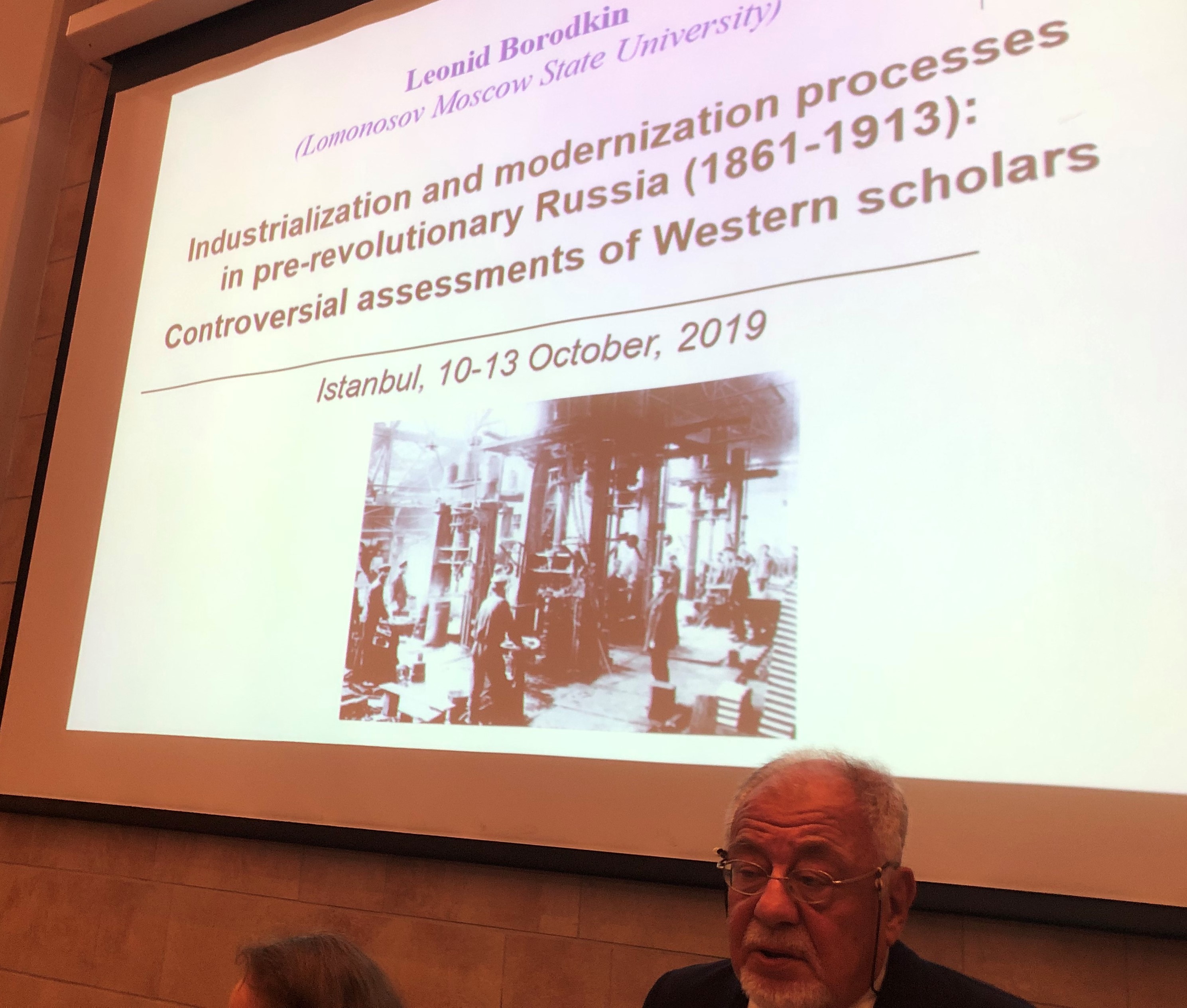The First International Workshop for Russian Studies, organised by Boğaziçi University and Lomonosov Moscow State University, has opened in Istanbul today.
Within the framework of the conference, historiographical issues of the relations between Russia and Turkey in the context of the modern dialogue between the states will be considered.
The event is attended by prominent researchers of Russian studies from Russia and Turkey. The conference was opened by President of the Turkish Historical Society, Professor Refik Turan; Professor at Boğaziçi University Faruk Birtek, as well as Professor of Ethnology at Moscow State University Olga Kazmina.
Refik Turan welcomed the Russian guests and thanked Boğaziçi University for organizing this important scientific event. "The Türks and Russians have always played a significant global role. Our countries were not friends in the period of from 1711 to 1917, however, according to the Turkish proverb, people get closer to each other through communication. In 1918, Russia supported Ataturk, and we remember that, there has been no war between us from 1917 to this day," he said.
"Today, Russia and Turkey have mutual interests in Syria. In fact, a hidden world war is being waged on Syrian territory. Joint decisions are being made on this issue, which is very important," Refik Turan added, the Vestnik Kavkaza correspondent reports.
Olga Kazmina, in turn, thanked for inviting and organizing the conference, and also drew attention to the importance of the unifying theme of the event, noted by Professor Faruk Birtek. "This conference allowed two scientific schools - Turkish and Russian scientists - to meet. We cannot afford to sit in capsules, it is necessary to expand the areas of research. We are public diplomats, we build bridges between societies. Today’s event is the first step and the beginning of our joint activity," she emphasized.
Corresponding member of the Russian Academy of Sciences; Professor Leonid Borodkin presented the first report at the conference on the topic 'Industrialization and modernization processes in pre-revolutionary Russia: Controversial assessments of Western historians.'
"I am happy that we are hosting this conference together today, we must discuss many historical topics regarding the relationship between the Russian Empire and the Ottoman Empire," Leonid Borodkin pointed out.

Professor İlber Ortaylı (Alexander the Third versus Abdulhamid the Second) and Associate Professor Ekaterina Romanova (Russia's approaches to the solution of the Eastern question in the late 19th-early 20th century) also delivered their reports.
After the launch, Professor at Boğaziçi University Asım Karaömerlioğu (Parvus and the historiography of the Russian Revolution), Professor at St Petersburg University Kirill Nazarenko (Kronstadt Rebellion and the background: Admiral Shchastny Case and The defense of Petrograd during the Civil War) and Assistant Professor of the Center for Russian Studies at Bilkent University Samuel Hirst (A Transnational Approach to Soviet-Turkish Technology Transfers in the 1930s) will present their papers.
On the second day of the conference, reports will be delivered by Professor of Ethnology at Moscow State University Olga Kazmina (Issues of cultural identities in the censuses of population of Russia and the USSR), Associate Professor of the Department of the History of the NIS Countries, Faculty of History at Moscow State University Ismail Agakishiev (Specifics of the formation of the Azerbaijani ethnic group in Russia), Associate Professor at Moscow State University Marina Bakhmatova (Debates over the ways of the development of Islam in the 20th century: Russia's and Turkey's Muslims at the 1926 Meccan Congress), Associate Professor at Moscow State University Aleksandr Ostapenko (Soviet Russia on the way to the conclusion of the 1921 Soviet-Turkish Treaty), Dr Mehmet Perinçek (Turkish-Soviet Military Cooperation in the South Caucasus (1919-1922)), Dr Umut C. Karadoğan (Military and financial Aid of Soviet Russia from the Black Sea to National Struggle), Senior Researcher Aleksandr Vershinin (Turkey and the Soviet policy of the collective security, 1930 – 1939) and Assistant Professor Onur İşçi (After Montreux: The Persistence of Soviet-Turkish Economic Cooperation).
Boğaziçi University is a major research university located on the European side of the Bosphorus strait in Istanbul, Turkey. It has four faculties and two schools offering undergraduate degrees, and six institutes offering graduate degrees. Founded in 1863, as Robert College, it is the first American higher education institution founded outside the United States.






